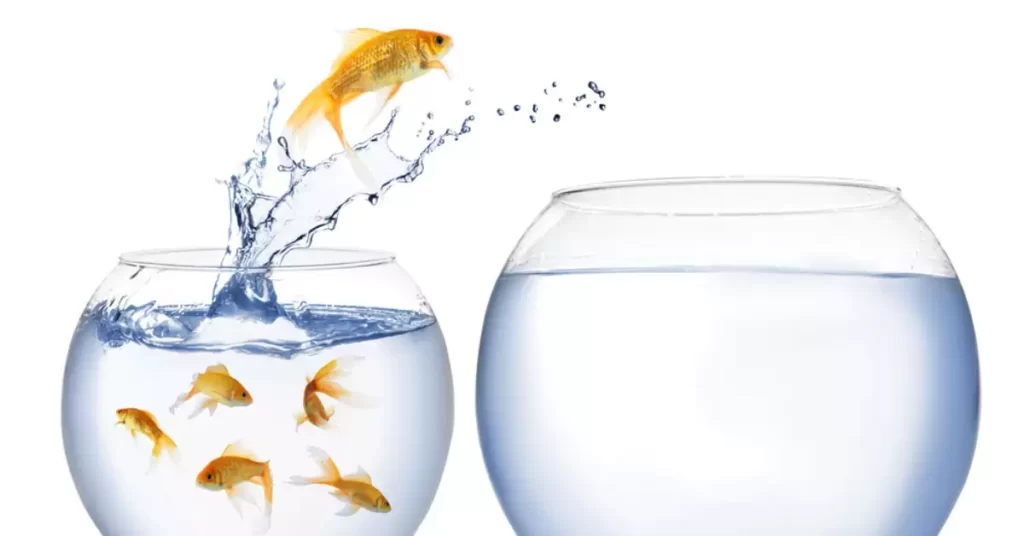Many people consider fish to be simple creatures, but recent studies have shown that they are more complex than we might think.
One question that arises is whether fish can suffer from depression. To explore this topic, we will delve into fish behavior, the signs of stress and depression in fish, and what can be done to prevent and treat these conditions.
Understanding Fish Behavior
To comprehend whether fish can suffer from depression, we need to first understand their behavior, which is influenced by social interactions and environmental factors.
Social Interactions
Fish are social creatures, and they communicate with each other through a variety of methods, such as body language, color changes, and even sound production.
Some fish species form complex social structures, while others prefer a more solitary existence.
Environmental Factors
The environment plays a crucial role in fish behavior. Factors like water temperature, water quality, and habitat complexity all influence how fish interact with each other and their surroundings.
Signs of Stress and Depression in Fish
Fish can exhibit several signs of stress and depression, which may indicate an underlying issue that needs to be addressed. Some common signs include:
Loss of Appetite
A fish that is depressed or stressed may lose interest in eating, leading to weight loss and a weakened immune system.
Lethargy
Depressed fish often exhibit decreased activity levels and may spend more time resting or swimming slowly.
Hiding or Staying at the Bottom of the Tank
A fish that is constantly hiding or remaining near the bottom of the tank may be trying to escape a stressful situation or cope with depression.
Causes of Depression in Fish
There are several potential causes of depression in fish, including:
Poor Water Quality
Low oxygen levels, high ammonia or nitrite concentrations, and incorrect pH levels can cause stress and depression in fish.
Overcrowding
Too many fish in a small space can lead to increased competition for resources and increased stress levels.
Inadequate Tank Setup
A lack of hiding spots, plants, and other features that provide mental stimulation can contribute to fish depression.
Stressful Environmental Changes
Sudden changes in water temperature, lighting, or other environmental factors can lead to stress and depression in fish.
The Importance of Mental Health in Fish
Just as with humans, mental health is an essential aspect of fish well-being. Depression and stress can lead to a weakened immune system, making fish more susceptible to disease.
How to Prevent Fish Depression
Preventing depression in fish involves providing them with a suitable environment and social conditions. Here are some steps you can take to ensure your fish remain healthy and happy:
Providing Proper Tank Conditions
Ensure your fish have enough space to swim and explore by choosing an appropriately sized tank for the species you are keeping.
Also, make sure the tank has ample hiding spots and decorations to simulate a natural environment.
Regular Water Quality Checks
Perform regular water quality tests to monitor parameters such as ammonia, nitrite, nitrate, and pH levels. Maintain a proper filtration system and conduct routine water changes to keep the water clean and healthy.

Providing Enrichment and Stimulation
Introduce new decorations, plants, and hiding spots periodically to keep the environment engaging and stimulating for your fish.
This can help prevent boredom and encourage natural behaviors.
Ensuring a Suitable Social Environment
Research the social needs of your fish species and provide appropriate tank mates. This may involve keeping schooling fish in groups or providing a single companion for a more territorial species.
Treating Depressed Fish
If you suspect your fish may be suffering from depression, take the following steps to address the issue:
Identifying the Cause
Observe the fish closely and look for any signs of stress or depression. Evaluate the tank conditions, water quality, and social environment to determine the root cause of the problem.
Addressing the Underlying Issue
Once you have identified the cause of the fish’s depression, take appropriate measures to address it.
This may involve adjusting water parameters, reducing overcrowding, or providing additional enrichment.
Monitoring Fish Behavior
After implementing changes, monitor the fish closely to ensure their behavior returns to normal. If the fish does not show signs of improvement, consult a veterinarian or fish expert for further guidance.
The Role of Aquarists in Fish Mental Health
As fishkeepers, it is our responsibility to ensure the mental and physical well-being of the fish in our care.
By providing appropriate tank conditions, maintaining water quality, and addressing signs of stress and depression, we can promote healthy and happy fish.
FAQs
Do fish have emotions?
Fish may not experience emotions in the same way humans do, but they can exhibit signs of stress, anxiety, and depression.
Can fish become bored?
Yes, fish can become bored if their environment lacks stimulation and enrichment. This can contribute to depression and stress.
How can I tell if my fish is stressed or depressed?
Look for signs such as loss of appetite, lethargy, hiding or staying at the bottom of the tank, and changes in coloration. If you notice any of these signs, it may indicate stress or depression.
Conclusion
Fish are more complex creatures than they may appear at first glance, and they can indeed suffer from depression.
By understanding fish behavior, recognizing signs of stress and depression, and providing proper care, we can ensure the mental health and well-being of the fish in our care.
As responsible aquarists, it is our duty to create an environment that promotes happiness and health for our aquatic companions.